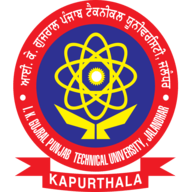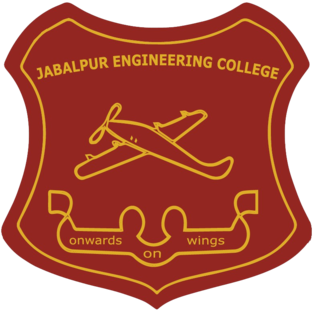
Indian Institute of Technology Roorkee is a technical university located in Roorkee, Uttarakhand, India. It is the oldest engineering institution in India, and was founded as the College of Civil Engineering in British India in 1847 by the Lieutenant-Governor of the North-Western Provinces, James Thomason, in order to train officers and surveyors employed in the construction of the Ganges Canal. In 1854, after the completion of the canal and Thomason's death, it was renamed the Thomason College of Civil Engineering by Proby Cautley, the designer and projector of the canal. It was renamed University of Roorkee in 1949, and again renamed IIT Roorkee in 2001. The institution has 22 academic departments covering Engineering, Applied Sciences, Humanities & Social Sciences and Management programs with an emphasis on scientific and technological education and research. IIT Roorkee is ranked among the most prestigious academic institutions in India.
Ghulam Ali Allana known as G. Allana was a friend and biographer of Muhammad Ali Jinnah, the founder of Pakistan. Mr. Allana entered politics at an early age and played an active part in the Pakistan movement. After Partition, he was instrumental in forming the Federation of Pakistan Chambers of Commerce & Industry. He was a member of the West Pakistan Legislative Assembly, besides being the mayor of Karachi. Internationally, Mr. Allana represented Pakistan at over 100 conferences, served on the governing body of the International Labour Organisation, and the president of the International Organisation of Employers, Brussels. At the United Nations he led a number of peace and diplomatic initiatives/working groups and went on to become chairman of the United Nations Commission on Human Rights in 1975. For his contributions he was awarded the United Nations peace medal and was also a nominee for the Nobel Peace Prize in 1977. He was also an English-language Pakistani poet and a counselor and friend to Fatima Jinnah, Muhammad Ali Jinnah's sister.

Ramaiah Institute of Technology (RIT), formerly known as M.S. Ramaiah Institute of Technology (MSRIT), is an autonomous private engineering college located in Bangalore in the Indian state of Karnataka. Established in 1962, the college is affiliated to Visvesvaraya Technological University.

The Thangal Kunju Musaliar College of Engineering, commonly known as TKMCE, is the first government-aided engineering institution in the Indian state of Kerala inaugurated on 3 July 1958. It is the first Government aided engineering college in Kerala. The institution is affiliated to KTU. The campus is located in Karicode, approximately 6 kilometres (3.7 mi) away from Kollam, Kerala, India. The college is affiliated to APJ Abdul Kalam Technological University since its inception in 2015.
The Sarvajanik College of Engineering and Technology (SCET) is an engineering college that is a part of the Sarvajanik Education Society. Sarvajanik Education Society's proposal for state university is accepted by Gujarat assembly on 30 March 2021.

The All India Council for Technical Education (AICTE) is a statutory body, and a national-level council for technical education, under the Department of Higher Education. Established in November 1945 first as an advisory body and later on in 1987 given statutory status by an Act of Parliament, AICTE is responsible for proper planning and coordinated development of the technical education and management education system in India.

Dr. A.P.J. Abdul Kalam Technical University (AKTU), before 2015 as the Uttar Pradesh Technical University (UPTU), is a public collegiate university in Lucknow, Uttar Pradesh, India. It was established as the Uttar Pradesh Technical University through the Government of Uttar Pradesh on 8 May 2000. To reduce workload and to ensure proper management, the university was bifurcated into separate universities, Gautam Buddh Technical University (GBTU) and Mahamaya Technical University (MTU), with effect from 1 May 2010. In 2013, as a new government came into power, the university was formed again by combining the two on 5 January 2013.

Regional Institute of Management and Technology (RIMT) is a private institution for engineering and management education located in Mandi Gobindgarh, Punjab, India

I. K. Gujral Punjab Technical University (IKGPTU), formerly Punjab Technical University (PTU), is a State university located by Kapurthala highway in Kapurthala, India. It was established by an act of State Legislature on 16 January 1997, to promote technical, management and pharmaceutical education in the state of Punjab at the degree level and above. Being an education and research university, it has a mandate to set up centres of excellence in emerging technologies for promoting training and research and development in these areas.

MES College of Engineering(MESCE) is a Kuttippuram, Malappuram-based private engineering college. It is Kerala's first self-financing engineering college, with a campus that extends for more than a mile (1.6 km) alongside the Bharathappuzha River. It was founded in 1994 as a minority-serving institution.

Gandhi Institute of Technology and Management (GITAM) is a private deemed university located in Visakhapatnam, Hyderabad and Bengaluru. The university was founded by the late Dr M. V. V. S. Murthi in Visakhapatnam in 1980. It was previously affiliated with Andhra University under the name GITAM College, then gained autonomy status in the year 2007. GITAM is the first private engineering institute in the state to receive the University status.
The Schools of Planning and Architecture (SPAs) are a group of autonomous public institutes of higher education under Ministry of Education, Government of India. They were established with the objectives of providing quality Architecture and physical planning education. The SPAs primarily offer undergraduate, postgraduate, doctoral and executive education programmes.

Chitkara University is a private university located in Rajpura, Punjab, India. It offers undergraduate programs, post-graduate program and doctoral programs in fields of engineering, management, pharmacy, health sciences, nursing, hospitality, art & design and education. It was established and is managed by the Chitkara Educational Trust.

Jabalpur Engineering College (JEC) is an institute located in Jabalpur, Madhya Pradesh, India. It is the oldest technical institution in central India and the 15th-oldest in India. It is the first institute of India to have started the Electronics & Telecommunication engineering education in the country, and also the last educational institution to be set up by the British in India. The Government of Madhya Pradesh is in the process of converting it into a Technical University.

The Ministry of Education is a ministry of the Government of India, responsible for the implementation of the National Policy on Education. The ministry is further divided into two departments: the Department of School Education and Literacy, which deals with primary, secondary and higher secondary education, adult education and literacy, and the Department of Higher Education, which deals with university level education, technical education, scholarships, etc.

The Indo Global Colleges are a group of self-financed and unaided institutes located in Abhipur, Punjab, India. The colleges were established in 2003 by the Indo Global Education Foundation (IGEF) and are affiliated to Punjab Technical University (PTU), offering various courses in engineering, architecture and management at bachelor and master levels.

APJ Abdul Kalam Technological University (KTU) is a state public technological university headquartered at Thiruvananthapuram, Kerala, India.

National Institutional Ranking Framework (NIRF) is a methodology adopted by the Ministry of Education, Government of India, to rank institutions of higher education in India. The Framework was approved by the MHRD and launched by Minister of Human Resource Development on 29 September 2015. Depending on their areas of operation, institutions have been ranked under 11 different categories – overall, university, colleges, engineering, management, pharmacy, law, medical, architecture, dental and research. The Framework uses several parameters for ranking purposes like resources, research, and stakeholder perception. These parameters have been grouped into five clusters and these clusters were assigned certain weightages. The weightages depend on the type of institution. About 3500 institutions voluntarily participated in the first round of rankings.

National Institute of Technology Tiruchirappalli is a public technical and research university near the city of Tiruchirappalli in Tamil Nadu, India. It was founded as Regional Engineering College Tiruchirappalli in 1964 by the Governments of India and Tamil Nadu under the affiliation of the University of Madras. The college was granted Deemed University status in 2003 with the approval of the University Grants Commission (UGC), All India Council for Technical Education (AICTE) and Government of India and renamed as National Institute of Technology Tiruchirappalli. The institute is recognized as an Institute of National Importance by the Government of India under the National Institutes of Technology, Science Education and Research (NITSER) Act, 2007 and is one of the members of the National Institutes of Technology (NITs) system, a group of premier Indian technical institutes governed by the Council of NITSER.
















